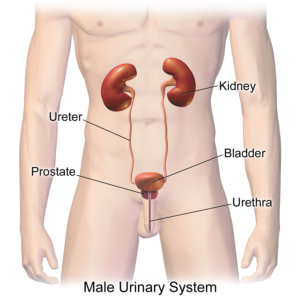 There has been lots of research in the past decade over the benefits of eating a diet rich in fruits, vegetables, whole grains, nuts, and legumes, especially a Mediterranean style diet. Health benefits include lowering chronic inflammation and a lower incidence of a number of chronic diseases, including type 2 diabetes.
There has been lots of research in the past decade over the benefits of eating a diet rich in fruits, vegetables, whole grains, nuts, and legumes, especially a Mediterranean style diet. Health benefits include lowering chronic inflammation and a lower incidence of a number of chronic diseases, including type 2 diabetes.
A recent study conducted in Spain added a twist to this. The researchers found that eating a lower calorie Mediterranean diet and increased levels of physical activity, resulted in a 31% reduction in the development of type 2 diabetes, as well as a greater weight loss and reduction of their waist size. The comparison group were persons who ate a Mediterranean diet, but without lowering their calorie intake or increasing physical activity over the 6 years of the study.
The subjects in this study were 4756 overweight or obese adults with metabolic syndrome, but without prior cardiovascular disease or diabetes - thus a group that was at high risk for developing type 2 diabetes. The calorie reduction goal was to eat about 600 fewer calories per day.
Excerpts from Science Daily: Scientists found a smarter Mediterranean diet that cuts diabetes risk by 31%
Eating a Mediterranean-style diet with fewer calories, adding moderate physical activity, and receiving professional guidance for weight management can lower the risk of developing type 2 diabetes by 31%. That is the key finding of PREDIMED-Plus, a large clinical trial led in Spain by the University of Navarra together with more than 200 researchers from 22 universities, hospitals, and research institutes. The project was carried out in over 100 primary care centers within Spain's National Health System. ...continue reading "Preventing Diabetes With A Mediterranean Diet and Increased Physical Activity"

 As people age, they frequently start wondering what they can do to prevent memory and thinking problems, and especially dementia. The good news is that several large studies found that there are a number of lifestyle changes that one can do to have a healthier (memory! thinking!) brain in later years. Even if you are already in your 60s and 70s.
As people age, they frequently start wondering what they can do to prevent memory and thinking problems, and especially dementia. The good news is that several large studies found that there are a number of lifestyle changes that one can do to have a healthier (memory! thinking!) brain in later years. Even if you are already in your 60s and 70s. Exercise helps fight cancer. Wow! What a headline. But is it true?
Exercise helps fight cancer. Wow! What a headline. But is it true?
 Exercise boosts brain function at all ages. This means that for both young and old, it is worth it to get out and engage in physical activity.
Exercise boosts brain function at all ages. This means that for both young and old, it is worth it to get out and engage in physical activity.